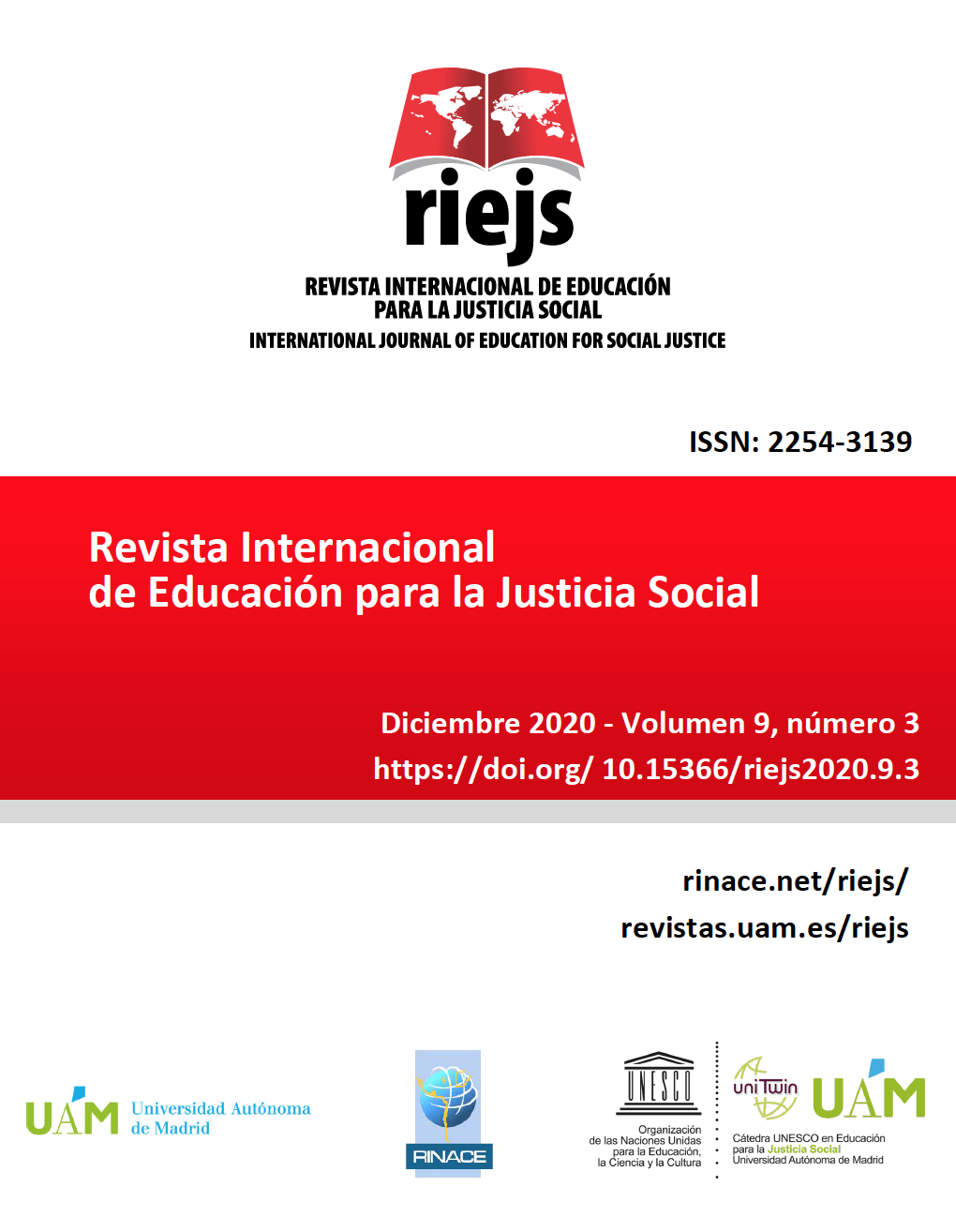Emotional Narratives of Higher Education Students in Quarantine Times
Keywords:
University education, Covid-19, Emotional competences, Self-regulatory strategies, Emotions
This work is licensed under a Creative Commons Attribution-NonCommercial-NoDerivatives 4.0 International License.
Abstract
Times of crisis are complex periods where dynamics coexist that accentuate difficulties, but also that create opportunities for individual and collective overcoming, in the sense of greater equity and social inclusion. With the Covid-19 pandemic, changes were introduced in our lives. In Portugal, universities closed and replaced the 2nd semester classroom classes with synchronous and asynchronous virtual classes. This situation was initially thought to be transitory, but remained until the end of the 2019/20 school year. As teachers of a group of 2nd year students in the Education and Training course at the Institute of Education, within the scope of the Emotional Competences curricular unit, we proposed to students to write narratives of their daily lives to include in their portfolios. In this article, we analyze those related to the periods of confinement and post-confinement, which allow us to perceive experiences and difficulties experienced by students over time, what emotions emerged, the regulatory strategies to deal with these difficulties, as well as the lessons learned, namely with regard to the development of emotional skills. They consider that this situation constituted a restriction on their freedoms, but also an opportunity to develop self-regulatory strategies, deepening dimensions relevant to their personal and academic path.
Downloads
References
Bakhtin, M. (2011). Estética da criação verbal. Martins Fontes.
Bakhtin, M. (2019). O homem ao espelho. Apontamento dos anos 1940. Pedro & João Editores.
Bar-On, R. (1997). The emotional quotient inventory (EQ-i): A test of emotional intelligence. Multi-Health Systems.
Batista, H. H. e Noronha, A. P. (2018). Instrumentos de autorregulação emocional: Uma revisão de literatura. Avaliação Psicológica, 17(3), 389-398. https://doi.org/10.15689/ap.2018.1703.15643.12
Bauman, B. (2000). Liquid modernity. Polity Press.
Baxter Magolda, M. (2002). Helping students to make their way to adulthood: Good company for the journey. About Campus, 6(6), 2-9. https://doi.org/10.1177/108648220200600602
Bolívar, A. e Domingo, J. (2006). Biographical-narrative research in Iberoamerica: Areas of development and the current situation. Forum: Qualitative Social Research, 7(4), 1-41. https://doi.org/10.17169/fqs-7.4.161
Chase, S. E. (2011). Narrative inquiry: Still a field in the making. En N. K. Denzin e Y. S. Lincoln (Eds.), Handbook of qualitative research (pp. 421–434). Sage Publications.
Clandinin, D. J. e Connelly, F. M. (2000). Narrative inquiry: Experience and story in qualitative research. Jossey-Bass.
CNE. (2019). O estado da educação 2018. CNE.
Damásio, A. (2010). O livro da consciência. Temas e Debates.
Damásio, A. (2017). A estranha ordem das coisas. A vida, os sentimentos e as culturas humanas. Temas e Debates.
de Rivera, J. e Paez, D. (2007). Emotional climate, human security, and cultures of peace. Journal of Social Issues, 63(2), 233-253. https://doi.org/10.1111/j.1540-4560.2007.00506.x
Echeita, G. (2020). La pandemia del Covid-19. ¿Una oportunidad para pensar en cómo hacer más inclusivos nuestros sistemas educativos? Revista Internacional de Educación para la Justicia Social, 9(1), 7-16.
Gonzalez, S. P. (2020). Youth and Covid-19: Impacts on jobs, education, rights and mental well-being-survey report 2020. International Labor Organization (ILO).
Goleman, D. (1995). Emotional intelligence. Bantam Books. https://doi.org/10.1037/e538982004-001
Goleman, D. (1998). Working with emotional intelligence. Bantam Books. https://doi.org/10.1002/ltl.40619981008
Goleman, D. (2010). Inteligência emocional. Temas e Debates.
Goleman, D., Boyatzis, R. e McKee, A. (2002). Primal leadership: Realizing the Importance of Emotional Intelligence. Harvard Business School Press.
Goodson, I. (2007). Currículo, narrativa e o futuro social. Revista Brasileira de Educação, 12(35), 241-252. https://doi.org/10.1590/S1413-24782007000200005
Gross, J. J. (2015). Emotion regulation: Current status and future prospects. Psychological Inquiry, 26(1), 1-26. https://doi.org/10.1080/1047840X.2014.940781
Livingstone K. M. e Srivastava, S. (2012). Up regulating positive emotions in everyday life: strategies, individual differences, and associations with positive emotion and well-being. Journal of Research in Personality, 46(5), 504-516. https://doi.org/10.1016/j.jrp.2012.05.009
Maia, B. R. e Dias, P. C. (2020). Ansiedade, depressão e estresse em estudantes universitários: o impacto da Covid-19. Estudos de Psicologia, 37, e200067. https://doi.org/10.1590/1982-0275202037e200067
Oliveira, V. M. e Navega, F. (2017). Relatório nacional sobre a implementação da Agenda 2030 para o desenvolvimento sustentável. Ministério dos Negócios Estrangeiros.
Peres, P. (2020). Covid-19 e a luta pela sobrevivência. Governação, IES, docentes e estudantes, Ensino Superior, 68, 26-29.
Quoidbach, J., Berry, E. V., Hansenne, M. e Mikolajczak, M. (2010). Positive emotion regulation and well-being: Comparing the impact of eight savoring and dampening strategies. Personality and Individual Differences, 49(5), 368-373. https://doi.org/10.1016/j.paid.2010.03.048
Salovey, P. e Mayer, J. D. (1990). Emotional intelligence. Imagination, Cognition and Personality, 9(3), 185-211. https://doi.org/10.2190/DUGG-P24E-52WK-6CDG
Schneider, T., Lyons, J. e Khazon, S. (2013). Emotional intelligence and resilience. Personality and Individual Differences, 55(8), 909-914. https://doi.org/10.1016/j.paid.2013.07.460
World Health Organization-WHO. (2020). Mental health and psychosocial considerations during the Covid-19 outbreak. WHO.

